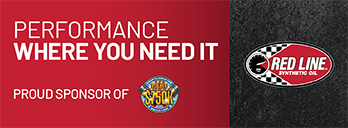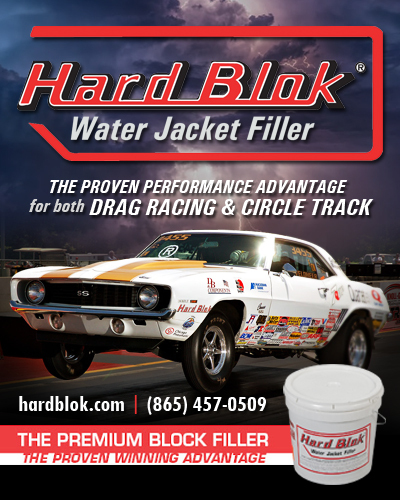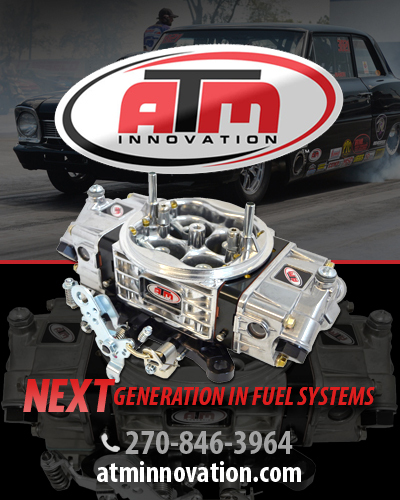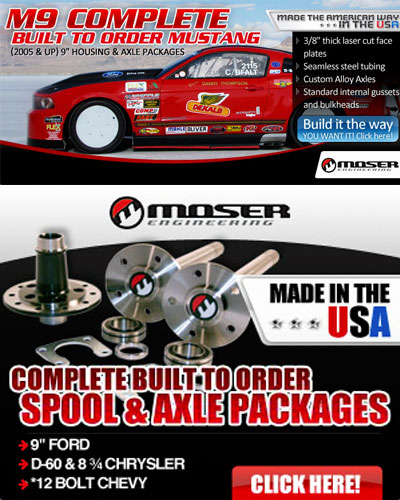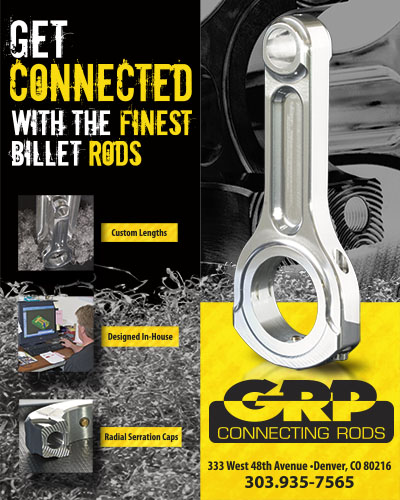HADDOCK: COST CONCERNS OVERRIDE SUPPLY-CHAIN ISSUES
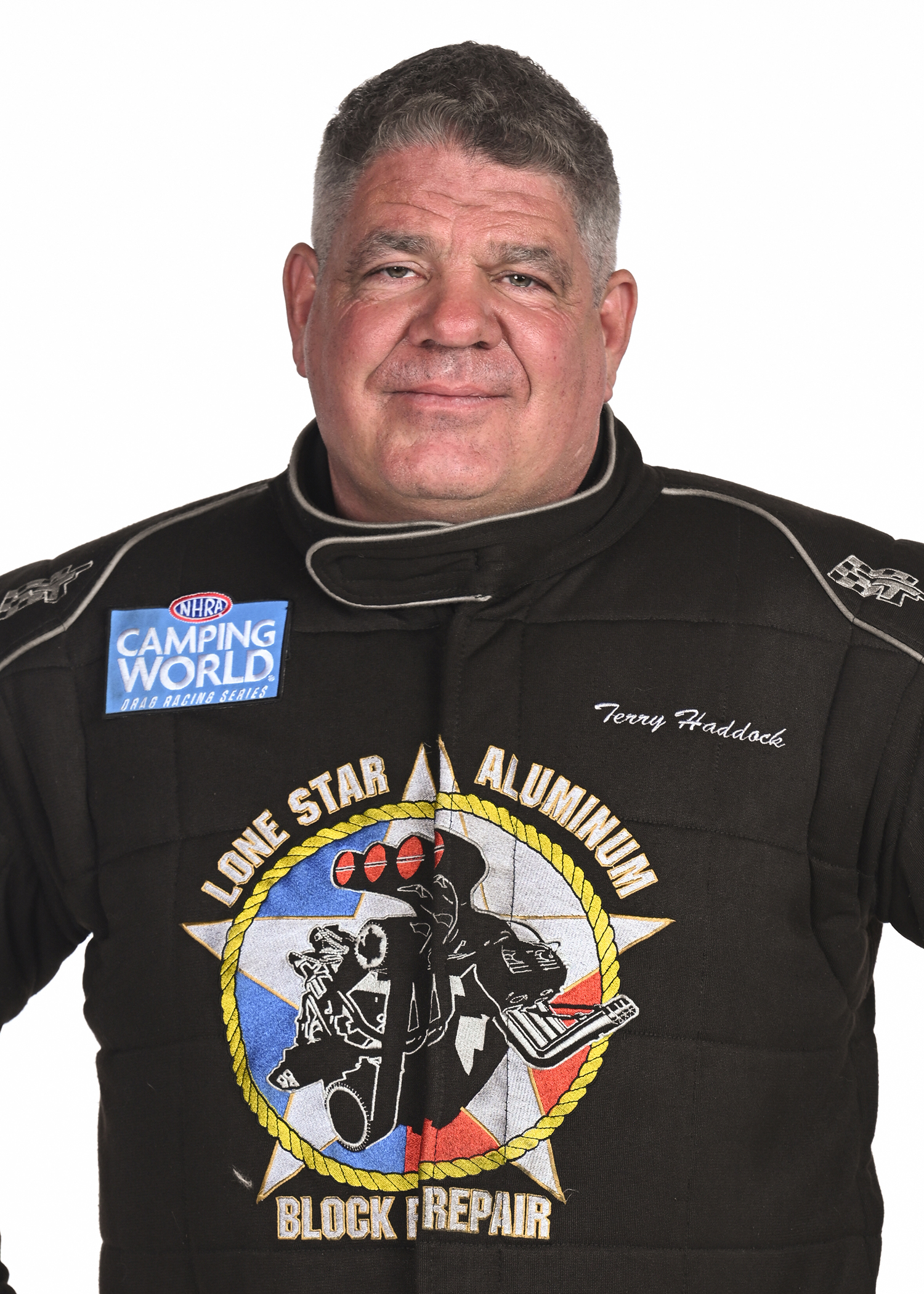
While COVID restrictions in China [where key automotive resources and materials originate] are just now starting to ease slightly, Russia’s military assault on Ukraine has kept the global supply-chain situation unstable. Inflation hovers at undesirable levels, and it’s most noticeable in America at the gas pump. Labor shortages and sometimes astronomical shipping and transportation costs have sent ripples of concern through specific economic sectors.
Christian Hinton, in a January 31 article for SEMA, wrote that more than 80 percent of its members have experienced supply-chain disturbances and that prices are expected to remain elevated into 2023. Despite that, he said, the specialty-equipment market continues to grow and that SEMA calculated the worst is behind us. In the Camping World Drag Racing Series, teams from the big-budgeted ones to the small-resource entries report they’re doing fine so far and are keeping their fingers crossed.
Don Schumacher, who has his Top Fuel operation and two Factory Stock Showdown cars, is keeping a close eye on the availability of raw materials because of his interconnected DSM Precision Manufacturing. According to jpmorgan.com’s May 25 article, “Ukraine is the largest exporter of alumina to Russia and operations were suspended in early March. The potential for alumina shortages is an immediate and tangible issue, which could be problematic for supply chains, as aluminum is a critical metal used in packaging, transport (automobiles and aerospace), renewable energy infrastructure, and wiring.”
Schumacher said Alcoa, his company’s aluminum vendor, has given “notice that they are now taking orders for 2023 and 2024, because some of the elements that create the aluminum castings and such does come out of Russia. There's certainly concerns. But I know DSR and DSM, we are in good shape for 2022, even going into ‘23, but I can't speak to a shortage for anybody else. A lot of things have some makeup in them that comes out of whether it be Russia or Ukraine or parts of the world that are really in turmoil right now.”
After speaking with DSM President Chad Osier, he said, “All I can say is what I got out of my people were that some of the items come from Russia that makeup aluminum and Alcoa has put us on notice that they are looking for orders for 2023 and 2024 - which tells me that if we wanted some more XYZ or, you know, blocks, the billet that makes up our blocks in 2022, I do not believe that is available. We are in good shape for 2022 and even in to 2023 with all of our products. So we don't have a problem, but I can't speak about any of the other [parts of the] industry.
“I can't tell you how aluminum is made. That’s way out of my pay grade,” Schumacher said. “I don't think they dig up aluminum ingots out of the Earth. I think it’s made up from x, y, z, a, b, c, d, and some of those items do come out of Russia. So Alcoa has put us and I would imagine the racing industry and other industries on notice that they are now looking for orders for 2023 and 2024.”
Terry Haddock, who runs his race team on a far more modest financial plan, told Competition Plus. “We've had no problems getting raw forgings and material, but all the material I use is made here in the United States. The forging company that I use, we've had no problems with, but what you do have problems with is what used to cost. I think we ordered 120 forgings in the middle of January, and we got them probably five weeks ago [sometime around March 1]. What used to be $800 or $900 shipping is now $2,000. The price of the materials has gone up a little bit, gone up quite a bit. Almost $15 a piece, which is quite a bit. The shipping has gone through the roof, but we haven't had problems getting our aluminum. Now everything else like all these race car parts, you try to buy stuff and it's a problem. But for the wheel business [he owns Circle Racing Wheels], the aluminum hasn't been an issue for us.
“My nine-to-five business is fixing blocks and building billet aluminum wheels. So when I repair the blocks, the patch material that we use hasn't been hard to get,” he said. “The helium that I weld the blocks with is touch-and-go. Sometimes you get it, sometimes you can't. But that's been going on for a couple of years. But the materials for doing the repairs on the blocks hasn't been bad.”
Haddock said he doesn't know the source of other teams’ forgings. “I know Alcoa is a provider of aluminum, but that's not who our forgings come from. What we're seeing more is everything that's gone on in the world and everything that’s gone on with COVID-19, everybody's made everything more expensive.
“When I fix your block, we buy what's called drops. So for different aerospace projects, the leftover aluminum, that's what I'll make the patches from because it's the same grade of material. We have enough patch material to fix blocks for another couple of years. It doesn't affect me directly in that respect,” he said. “But when you go to the welding shop, and I weld all these blocks with helium, it's a medical-grade helium and it's a kind of a special welding process. A 200 series bottle of helium used to cost me 300 bucks, and now it's 795 bucks. One bottle of helium will weld for 11 hours straight. That's all that's in it. So you get 11 hours’ worth of welding out of that bottle. It just doubled your hourly cost because of the welding, and it's not our fault. It's the gas we need to weld with.”
Haddock said he has seen labor problems.
“We run Alan Johnson's rods and we're on the list to always get connecting rods, and they do their best to get them to us. I don't know what the issue is, whether they can't get forgings – because they've never told us and I haven’t asked – or if it's just getting the qualified people to build the parts. And I don't know if that's at Alan's, but you see when you call and order connecting rods, you can't just order them off the shelf anymore.”
He hasn’t sought another supplier because he said AJPE [Johnson’s company] “makes the best connecting rod and every time I've ever tried personally to do something different, it bites me in the ass. So I just don't do it.” He said he’s sticking with what he knows works and is willing to put up with the inconvenience.
“They're doing their best to supply everybody. But it's such a good product that I'm afraid to go anywhere else,” Haddock said. “Now, for bigger pieces like cylinder heads and blocks, I don't know where their aluminum comes from and what kind of forgery they use. because it's not necessarily the same as what I do for the procedure. On the block and head thing, he deals directly because they do make their own blocks. He would have a better feel for that.”
Haddock said he hasn’t heard anything from the other teams throughout the pits, “not about the materials and stuff like that. Everybody out here is struggling with the cost going through the roof on everything and availability of stuff, like when you order stuff. Obviously, the bigger teams can buy more of it at a time, so they get a better pick than you get in the parts. But by some miracle, between all the teams and manufacturers, I've had everything I've needed for my cars.”
He indicated he’s not as concerned about all that as he is about rising costs.
“I think we have bigger problems, let's put it that way,” Haddock said. “If you can't afford to put fuel in these trucks when you're going up the road, none of it's going to matter. You try to take your crew out for dinner and the price has doubled. You try to buy groceries to feed everybody at the track and it's doubled. The diesel fuel’s gone through the roof. I mean, it's crazy. So a hotel used to be a hundred bucks, is now 200 bucks. So all the logistical stuff is going through the roof.
“I think that's going to cripple us all, as much or more, than the parts,” he said. “The parts are going to be a factor, especially the more you hurt. But all the other stuff is going to tie together. So if we're worried about a shortage of aluminum, but if we can't put fuel in the trucks to run up the road, we're all thinking of it the wrong way.”
Haddock acknowledged that many costs that are involved in NHRA drag racing are beyond the sanctioning body’s control.
“Anybody that's in business can look at this picture. And as much as NHRA used to not think about the racer as much, I think they're generally caring about us now,” he said.
“Let me give you an example. At the beginning of the year, my overall insurance policy that covers the shop, the equipment, liability, the stuff running up and down the road . . . Last year my policy for the whole year was like $21,000. Well,” Haddock said. “this year in January, it goes up to $26,900 or something like that. It goes up huge, and there's nowhere that does this that you can just shop it around and go somewhere else. So if my insurance has gone up that drastically, what does NHRA’s go up? What are these racetracks faced with? Like we always bitch that we don't get enough money, but do we ever stop and go, ‘Wow, if my s--t went up, theirs went up’?
“We're all in it together, but I don't know what the answer is. I have no idea,” he said, “but I know that this is going to be hard. It's a bigger storm to weather than aluminum.”
>He said he might not know what the answer is, but he had a theory: “Maybe if these people that spent their time trying to figure out what bathroom to use could have figured out how to keep their eye on the ball, maybe we wouldn’t be here.”

